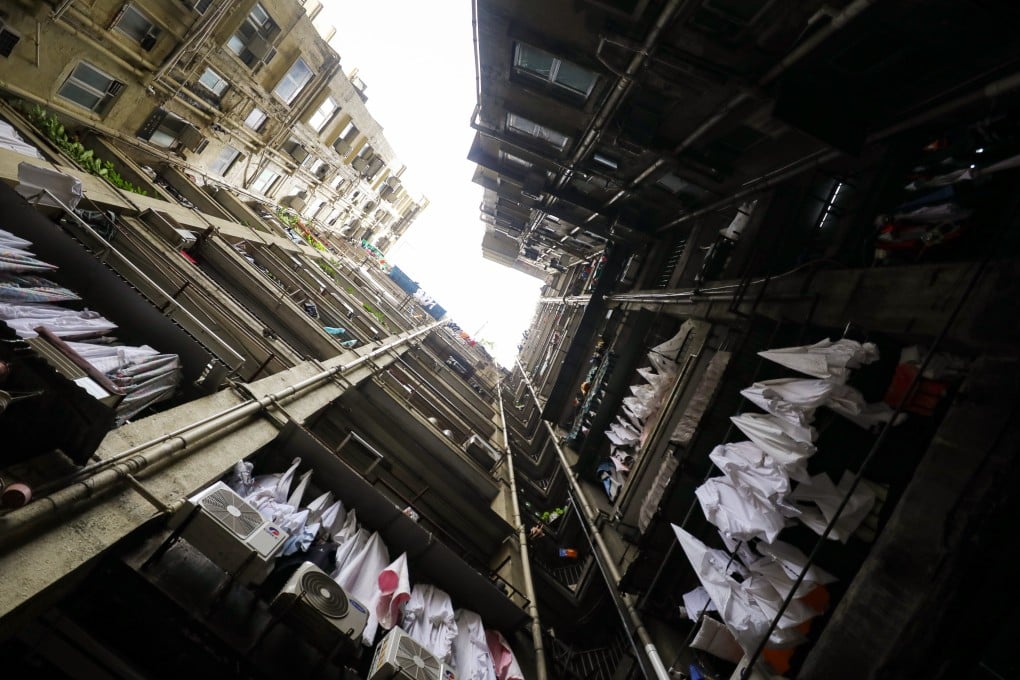Hong Kong asylum seekers returning to blaze-hit New Lucky House denied aid over lack of ID cards
- Asylum seekers say they did not receive financial and other help given to New Lucky House fire victims
- Some help agencies say they provided aid regardless of whether victims had Hong Kong identity cards

The 38-year-old asylum seeker from Indonesia lost a cat and many possessions in the blaze, but rebuilding her life has proved difficult.
With no income, she has resorted to rummaging through trash discarded by other residents for objects such as boxes to prop up her broken bed.
She said her attempts to obtain financial aid from some NGOs and charities were denied because, like all asylum seekers in the city, she does not have a Hong Kong identity card.
More than three dozen asylum seekers were affected by the blaze, and some like Alana claim they did not receive financial and other help given to the rest of the victims.
She said that on the day of the fire, she was even denied food vouchers and power banks being distributed to survivors at a nearby government-run shelter.
